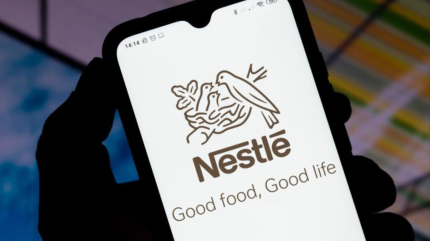
A cohort of major businesses has called on countries’ leaders to adopt and enforce policies “to halt and reverse nature loss this decade”.
More than 130 companies and financial institutions, including Nestlé, Danone and Unilever, have made the call to action under the umbrella of the Business for Nature organisation.

Discover B2B Marketing That Performs
Combine business intelligence and editorial excellence to reach engaged professionals across 36 leading media platforms.
The letter, which includes the Biodiversity Plan from the organisation, has been signed ahead of the UN Biodiversity Conference, which is due to take place this year from 21 October to 1 November in Cali, Colombia.
The statement includes five recommendations for nature policies, including ensuring “business and financial actors protect nature and restore degraded ecosystems”, according to a statement.
The organisation is also asking countries to “ensure sustainable resource use and management to reduce negative environmental impacts”, as well as “valuing and embedding nature in decision-making and disclosure”.
The group has recommended aligning “all financial flows to transition to a nature-positive, net zero and equitable economy” and for governments to “adopt or strengthen ambitious global agreements to address key nature loss challenges”.

US Tariffs are shifting - will you react or anticipate?
Don’t let policy changes catch you off guard. Stay proactive with real-time data and expert analysis.
By GlobalDataLaurent Freixe, the CEO of Nestlé’s business in Latin America, said: “Colombia is home to 10% of the planet’s biodiversity. Nature loss is a critical risk we cannot ignore, and the success of our business relies on a healthy natural world.
“At Nestlé, we have set ambitious targets to ensure 50% of our key ingredients are sourced from farmers adopting regenerative agriculture practices by 2030. We strongly support the call for governments and the private sector to help halt and start reversing nature loss by 2030.”
In 2021, the KitKat and Maggi owner said it would invest SFr1.2bn (then $1.3bn) over the next five years, with a focus on areas such as biodiversity, soil conservation and the regeneration of water cycles.
Nestlé claimed it had a “network” of more than 500,000 farmers and 150,000 suppliers with which it can implement its regenerative farming policies.
By 2023, the proportion of Nestlé’s ingredients the company said were sourced from farmers using regenerative agriculture stood at 15.2%.
Eva Zabey, the CEO of Business for Nature, said: “Businesses are uniting and calling on governments to provide the regulatory certainty they need to transform their operations and supply chains.
“Our policy asks governments how they can make this a reality. Only through collective effort will we be able to drive the global systemic change needed for a nature-positive, net zero and equitable economy.”
In a separate report today yesterday, Business for Nature expanded on the five recommendations with 20 specific policy demands ahead of the summit, including calls for subsidy and tax reform, a ban on deep-sea mining, the adoption of a Global Plastics Treaty and the prohibition of land conversion in specific key protected areas.
Last year, it was announced Nestlé, Unilever and PepsiCo were among the FMCG giants that had signed a framework agreement for the transition to regenerative agriculture.
The Regenerating Together project was rolled out by the Sustainable Agriculture Initiative (SAI) Platform, a Brussels-based non-profit organisation promoting sustainable development in agriculture.
Its introduction came amid criticism from the environmental, social and corporate governance (ESG) advocacy group, the FAIRR Initiative, which claimed only a small proportion of “food and retail giants” had regenerative agriculture targets, despite promoting the practice.





